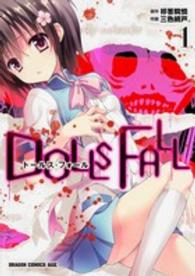Full Description
This book is a collection of the best scientific research presented during the First International Conference of Indonesian Medical and Health Professions Education (INA-MHPE Conference 2022) hosted by the Departments of Medicine, Health Professions Education, and Bioethics in the Faculty of Medicine, Public Health, and Nursing at the Universitas Gadjah Mada (UGM) in Indonesia. The conference was held in co-operation with the co-hosts of Department of Medical Education at Universitas Indonesia (UI) and the Medical Education Unit in the Faculty of Medicine at Universitas Airlangga (UA), who will host the forthcoming INA-MHPEC in 2024 and 2026, respectively. This collection presents selected papers presented by health professionals and bioethicists from these leading institutions in Indonesia, focusing on the theme of character building in the context of health education for medical professionals in the twenty-first century. It considers effective learning strategies for character building, appropriate methods of character assessment, means of assessing and improving the learning environment in the community, clinics, university classes and hospitals, and addresses the role of the healthcare educator in providing resources, program evaluations, and effective medical management to support the development of healthcare professionals' characters, and their modus operandi, in the future. The book is relevant to medical and public health professionals in Indonesia, Southeast Asia, and beyond.
Contents
Chapter 1. Advancing programmatic assessment using e-portfolio for undergraduate medical education: A national development report (Utomo, P.S., Greviana, N., Sumunar, D.S.E.W., Soemantri, D., Claramita, M.).- Chapter 2. An exploration of nursing students' experiences using case report design: A case study (Fitriyyah, Y.N., Annurahman, A., Aulawi, K., Alda, A.K., Susilo, A.P.).- Chapter 3. Assessment and evaluation of block of disaster preparedness: Implementing problem-based learning in clinical and public health management (Solikhah, A., Qomariyah, N., Indarto, B.P., Nisa, A.K.).- Chapter 4. Case-based interprofessional learning to increase health professions students' perceptions of communication and teamwork (Hermasari, B.K., Asrini, N.E.).- Chapter 5. Character development and learning activity in medical education: Lecturer perception (Rahmadani, M.F., Izzah, A.F., Munawaroh, S., Hastami, Y., Wiyono, N.).- Chapter 6. Correlation between self-directed learning readinessand structured oral case analysis test scores (Widiarti, C., Pribadi, FW., Findyartini, A.).- Chapter 7. Developing clinical skill videos as an instrument to assess the Objective Structured Clinical Examination (OSCE) examiners' effect (Purnajati, O.G., Hidayah, R.N., Rahayu, G.R.).- Chapter 8. Differences in perceptions of values, roles and responsibilities, communication, and teamwork regarding interprofessional education (IPE) between medical, midwifery, and psychology students (Pamungkasari, E.P., Probandari, A., Parwatiningsih, S.A., Agustina, L., Sumardiyon., Asmara, F.Y., Kristina, T.N.).- Chapter 9. Dysfunctional coping strategies by medical students with stress in the COVID-19 pandemic (Rochmanti, M., Sari, D.R., Sakina., Atika., Sugiyatmi, T.A.).- Chapter 10. Exploration of interprofessional education learning methods in achieving collaborative competencies during Covid-19 pandemic (Ghurafa, KA., Maftuhah, A., Hermasari, BK.).- Chapter 11. Feasibility of peer assessment in evaluating medical students' professional behaviour in the early years of their medical journey (Samarasekera, D.D., Shing L.S., Ping Y.S., Denise GOH.).- Chapter 12. Formative Objective Structured Clinical Examination (OSCE) as a learning tool and predictor of high-stakes OSCE (Wahyuningsih, K.A., Prastowo, N.A., Juliawati, V.D.J., Ardianto, C.).- Chapter 13. From burnout to resilience during online learning in the pandemic era: A qualitative study on medical students (Sari, S.M., Wulandari, A., Kristiana, R., Nurfuadi, L., Yuhana, G.P., Ibrahim, M.F.).- Chapter 14. Health professions education journal club: Faculty-led initiative in promoting community of practice (Razak, S.S.A., Nadarajah, V.D., Veasuvalingam, B.).- Chapter 15. "How intense should be a nurturing program physician mindset?" (Nurokhmanti, H., Utomo, P.S., Susilo, A.P., Prihatiningsih, T.S.).- .- Chapter 16. Implementation of design principles for virtual patient simulation in interprofessional education (Sumunar D.S.E.W., Stathakarou, N., Kononowicz A.A., Karlgren, K.).- Chapter 17. Medical student organization activities and self-directed learning readiness (SDLR): A cross sectional study (Maryam, S., Matuhah, A., Munawaroh, S., Nugroho, D.).- Chapter 18. Perception of interprofessional education (IPE) of healthcare workers from public health facilities (Munawaroh, S. Hitipeu, HR.).- Chapter 19. Teaching in limited time training using a 'champion' approach (Hapasari, S.N.D., Suhoyo, Y., Emilia, O.).- Chapter 20. The effect of self-regulation and the unified theory of acceptance and use of technology (UTAUT) factors on medical students' mental well-being (Indriyani, SL., Hermasari, BK., Nuroho, D.).- Chapter 21. The use of online flipped classroom in medical student clinical skills training during COVID-19 pandemic: Students' perception (Munawaroh, S., Hastami, Y., Hermasari, B.K., Nugroho, D., Nugroho, N.A., Budiastuti, V.I., Pamungkasari, E.P., Mashuri, Y.A., Hanifah, A.A.N.N.).- Chapter 22. Strengthening the implementation of programmatic assessment: Shifting the paradigm to assessment for learning as the first step (Hidayah, R.N., Findyartini, A., Poncorini, E., Claramita, M.).- Chapter 23. Student perception of integrated clerkship in primary care (Munawarah, S., Hermasari, B.K., Hanifah, A.A.N.N.).- Chapter 24. 'We want to practice and be safe': Students' perception on clinical learning methods during the first wave of the COVID-19 pandemic (Putri, D.P., Prabowo, N.A., Budianto P., Munawaroh, S.).






